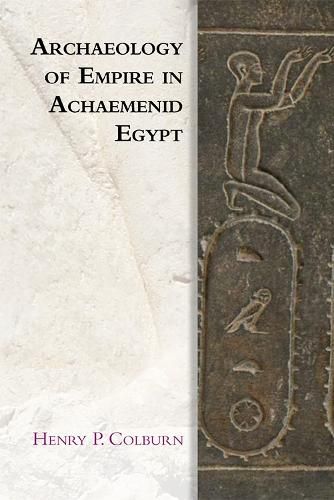Readings Newsletter
Become a Readings Member to make your shopping experience even easier.
Sign in or sign up for free!
You’re not far away from qualifying for FREE standard shipping within Australia
You’ve qualified for FREE standard shipping within Australia
The cart is loading…






A study of the material culture of Egypt during the period of Achaemenid Persian rule, c. 526-404 BCE
Provides a clear overview of the archaeological evidence for Achaemenid Egypt, including temples, tombs, irrigation works, statues, stelae, seals and coins Demonstrates how different types of evidence, both textual and archaeological - including material of uncertain provenance - can be used to address a single historical question Offers critical discussion of the dating criteria used by archaeologists for Egyptian Late Period material Elucidates strategies used by the Persians to establish and maintain control of Egypt Examines how these strategies may have affected the lives of people living in Egypt during the 27th Dynasty Creates a new explanatory model for the introduction of coinage to ancient Egypt
Previous studies have characterised Achaemenid rule of Egypt either as ephemeral and weak or oppressive and harsh. These characterisations, however, are based on the perceived lack of evidence for this period, filtered through ancient and modern preconceptions about the Persians.
Henry Colburn challenges these views by assembling and analyzing the archaeological remains from this period, including temples, tombs, irrigation works, statues, stelae, sealings, drinking vessels and coins. By looking at the decisions made about material culture - by Egyptians, Persians and others - it becomes possible to see both how the Persians integrated Egypt into their empire and the full range of experiences people had as a result.
$9.00 standard shipping within Australia
FREE standard shipping within Australia for orders over $100.00
Express & International shipping calculated at checkout
A study of the material culture of Egypt during the period of Achaemenid Persian rule, c. 526-404 BCE
Provides a clear overview of the archaeological evidence for Achaemenid Egypt, including temples, tombs, irrigation works, statues, stelae, seals and coins Demonstrates how different types of evidence, both textual and archaeological - including material of uncertain provenance - can be used to address a single historical question Offers critical discussion of the dating criteria used by archaeologists for Egyptian Late Period material Elucidates strategies used by the Persians to establish and maintain control of Egypt Examines how these strategies may have affected the lives of people living in Egypt during the 27th Dynasty Creates a new explanatory model for the introduction of coinage to ancient Egypt
Previous studies have characterised Achaemenid rule of Egypt either as ephemeral and weak or oppressive and harsh. These characterisations, however, are based on the perceived lack of evidence for this period, filtered through ancient and modern preconceptions about the Persians.
Henry Colburn challenges these views by assembling and analyzing the archaeological remains from this period, including temples, tombs, irrigation works, statues, stelae, sealings, drinking vessels and coins. By looking at the decisions made about material culture - by Egyptians, Persians and others - it becomes possible to see both how the Persians integrated Egypt into their empire and the full range of experiences people had as a result.